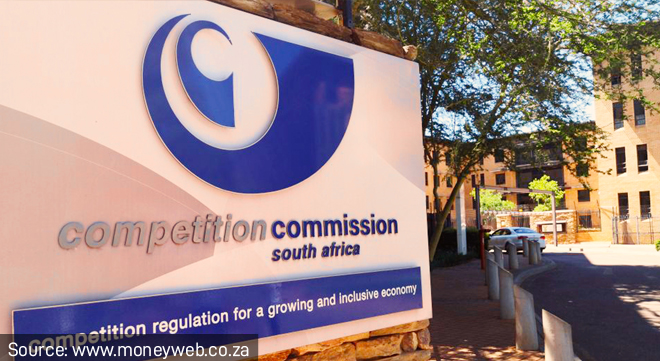On Tuesday, News24 published an “exclusive” story based on the emails that the Competition Commission submitted as evidence to obtain warrants to conduct search-and-seizure operations at eight life insurers last year.
At the time, the commission disclosed it was investigating the life insurers for alleged collusion and price-fixing.
On August 25, 2022, the commission “raided” the premises of Bidvest Life (then called FMI), BrightRock, Discovery, Hollard, Momentum, Old Mutual, Professional Provident Society and Sanlam.
News24 said it filed a Promotion of Access to Information request to access the documents the commission submitted to the High Courts in the Western Cape, KwaZulu-Natal and Gauteng.
According to the report, the Competition Commission believes the long-term insurers have been colluding to fix prices for 34 years.
It quoted as follows from the commission’s affidavit filed in the Western Cape High Court: “The commission has information that the conduct has been ongoing since at least 1989. The information at the disposal of the commission indicates that the following respondents have participated in the conduct of sharing information pertaining to price with the view of adjusting their prices accordingly.”
According to News24, the commission alleged that, between 1989 and 1991, each of the implicated insurers kept a “rate book” in which they recorded the prices of the affected products. They would exchange their rate books. After 1991, insurers allegedly exchanged the information using floppy disks, and from 2013 they used online platforms. The insurers allegedly shared the log-in details.
The report stated: “Even before the raids, the commission said it had obtained emails between employees of the different insurers requesting and sharing log-in details to their pricing platform. There was a complainant who brought this alleged conduct to the attention of the authorities. But it’s not clear whether that person provided the email evidence.”
According to News24, the commission also contends that the increase in group risk insurance premiums after the Covid-19 pandemic “was suspect”.
“The commission believes this was also a product of this alleged collusive conduct because Covid-19-related deaths had already started falling in 2021. It contends that because it had become clear before the end of 2021 that mortality rates were improving, some of the insurers would have lowed premiums instead of increasing them if there wasn’t any price-fixing,” the report said.
Full News24 report (subscription required)
Are these emails really the ‘smoking gun’?
Assuming the News24 report is an accurate reflection of the Competition Commission’s evidence, is sharing information in itself sufficient for a prima facie case of collusion?
Last year, when asked what the commission would have to do to show collusion, Ahmore Burger-Smidt, director and specialist in competition law at Werksmans Attorneys, said: “The burden of proof for the commission is still to prove that there was an agreement or a concerted practice, similar behaviour, amongst different participants within an industry …”
Burger-Smidt said there was nothing wrong with insurers following publicly available information and building products based on this data. However, it became collusion when companies got together to decide which products they would launch and at what price points.
Sanlam chief executive Paul Hanratty has dismissed the commission’s contention that the insurers shared log-in codes for each other’s systems so they could collude to fix prices.
“We give access to 26 000 people on our quote system, mainly intermediaries. To facilitate people comparing costs, we do provide access to our quote system. There’s nothing wrong with seeing a price. The more transparency and disclosure you have on prices, the greater the benefit of competition for customers, so the very character and nature of this activity – and allowing people to get hold of prices – is actually good for clients. It promotes competition and it promotes better pricing,” he said in an interview with BusinessLive in September last year.
Hanratty told Fin24 that insurers share information relating to Covid-19. However, this did not mean that all insurers will end up with the exactly the same pricing.
Read: Sanlam is confident the Competition Commission’s investigation won’t turn up any dirt




With an approach like that from the competition commission, does that mean that aggregator websites such as Hippo, Travelstart and others are assisting with price fixing?
Pricing is available in the public domain, but “colluding to fix pricing” by providers is an entirely different story.